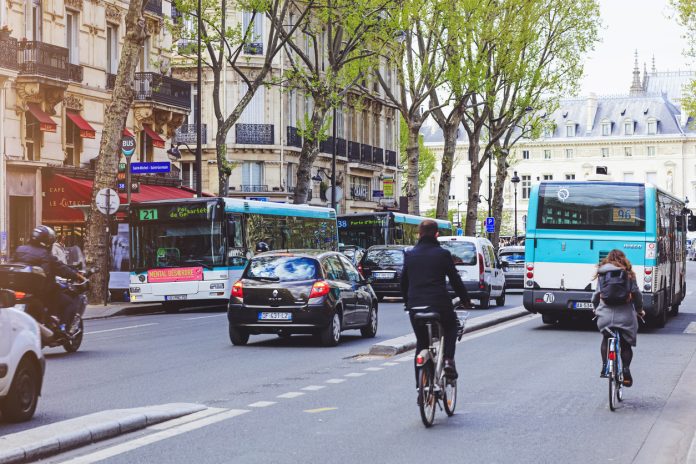A new partnership between EIT Urban Mobility and the French Innovation Agency for Transport (AIT) has launched the EU-Propel initiative, which is a project designed to scale innovative mobility solutions and tackle the unique challenges of urban transport
Focused on reducing car dependency, the initiative tested three forward-thinking solutions in six metropolitan areas across France, delivering real environmental and efficiency benefits.
Innovation with EU-propel
EU-Propel was created to support AIT’s open innovation programme, driven by helping selected startups scale their solutions in real-world settings. The project aimed to improve technological readiness, scalability, and replicability of new urban mobility approaches, while also laying the groundwork for international expansion.
EU-Propel selected three startups, DEKI, 1km à pied, and Ynstant, all of which innovations were tested for at least three months in cities including Métropole du Grand Paris, Toulouse Métropole, Nevers Agglomération, Métropole Aix Marseille Provence, Métropole Rouen Normandie, and Ville de Saclay.
Each pilot, as part of the EU-Propel, engaged with local governments, end users, and citizens to validate impact and adaptability. At the same time, innovation consultancy BAX Innovation supported the startups daily and assessed the readiness of the solutions.
DEKI optimises urban logistics
The first pilot of the EU-Propel is DEKI, which introduced its software tools, DEK’impact and OPTIDEK, to optimise last-mile delivery operations using intelligent routing that considers vehicle type, cargo, and delivery points. The solution was piloted in Aix Marseille Provence, Grand Paris, and Toulouse.
In Paris, DEKI tested a new model for commercial goods delivery, shifting from a heavy-duty thermal vehicle to a peri-urban hub system with zero-emission last-mile deliveries. The shift impacted over 1,400 deliveries.
In Toulouse, DEKI evaluated a week’s worth of 6,200 deliveries using a fleet of mixed-energy vehicles. They then tested the transition to electric cars for 535 deliveries to measure the environmental impact.
The results showed that there was an 80% reduction in CO₂ emissions, 40% fewer kilometres driven, and 50% less time spent on the roads by delivery vehicles.
1km à pied cuts commuting times and costs
In Rouen, 1km à pied partnered with La Poste Groupe to test an internal employee relocation solution aimed at reducing commuting distances. Using its software platform, the startup analysed commuting patterns of over 6,100 employees and identified thousands with a potential workplace closer to home.
The tool helped match employees with nearby job locations and logged mobility preferences for future relocation planning. Two successful transfers during the pilot led to an 87% cut in commute times and a 94% reduction in annual fuel costs, leading to €5,000 in savings per employee. The collaboration is ongoing through 2025.
Ynstant boosts shared mobility options
.
Ynstant addressed limited public transport access by piloting its real-time carpooling app in Nevers Agglomération and Ville de Saclay. The app provides an alternative for short-to-medium trips, improving car occupancy and reducing emissions.
In Nevers, over 2,700 shared trips were completed by 1,403 users. In Saclay and Jouy-en-Josas, 2,551 visits were recorded, involving 837 users. The EU-Propel introduced new app features like kilometre-based pricing, fraud detection, and pre-planned trip booking.
EU-Propel has shown how joint partnerships can lead to impactful innovation in urban mobility. By allowing for real, user-tested solutions, the EU-Propel is not only helping to cut emissions and improve efficiency but also creating models for future sustainable urban transport systems across Europe.











